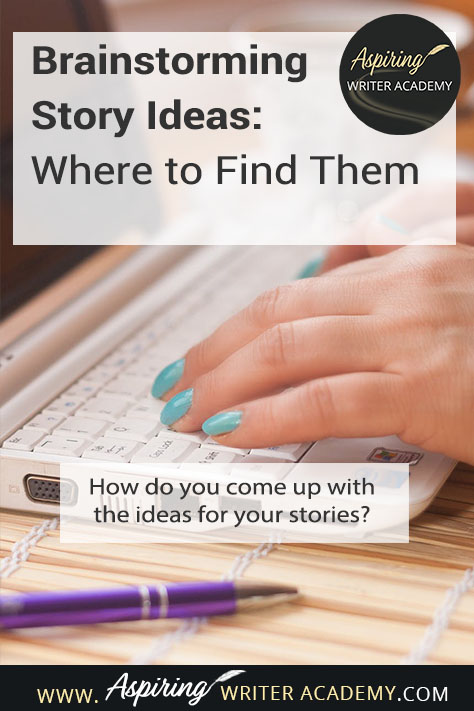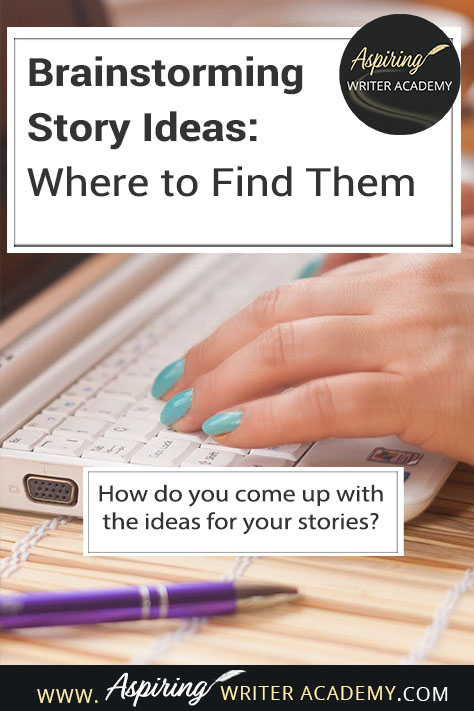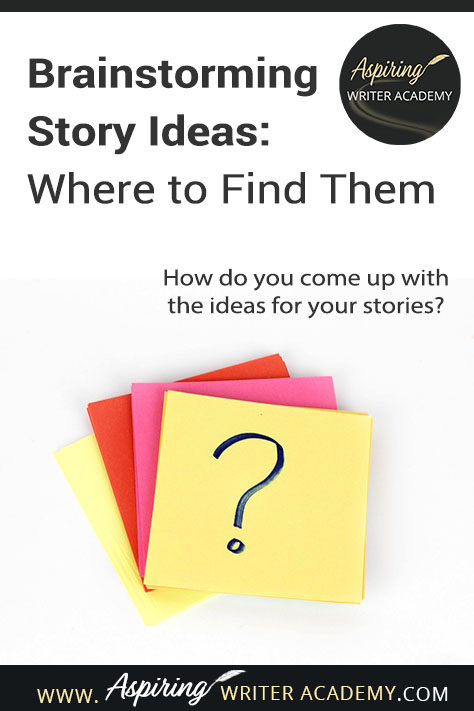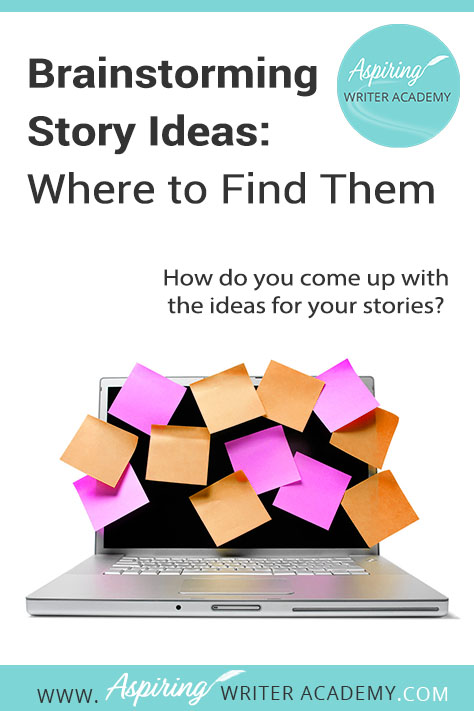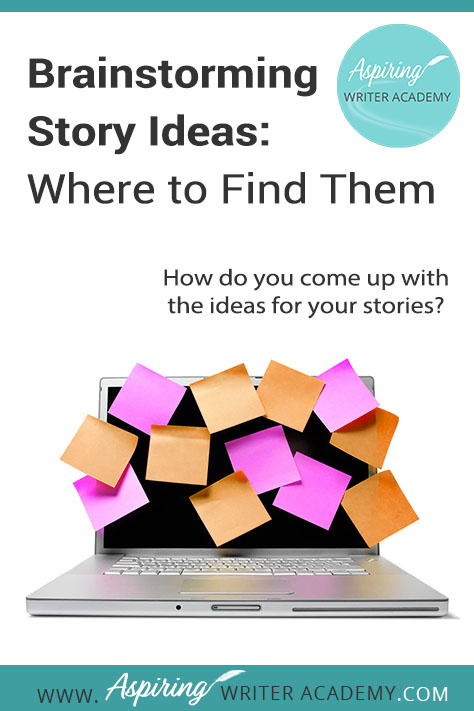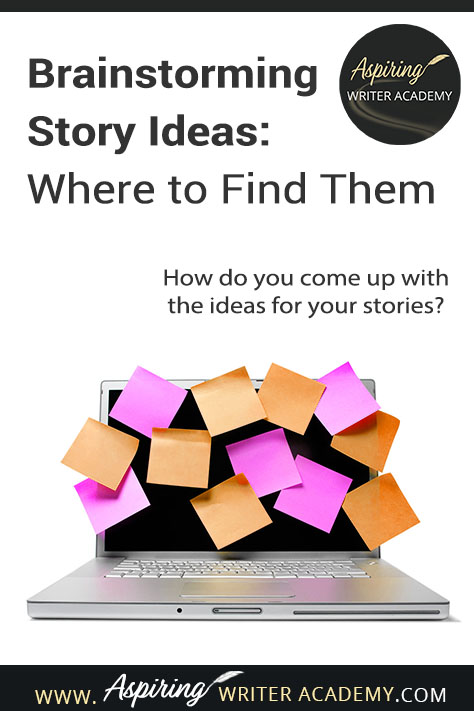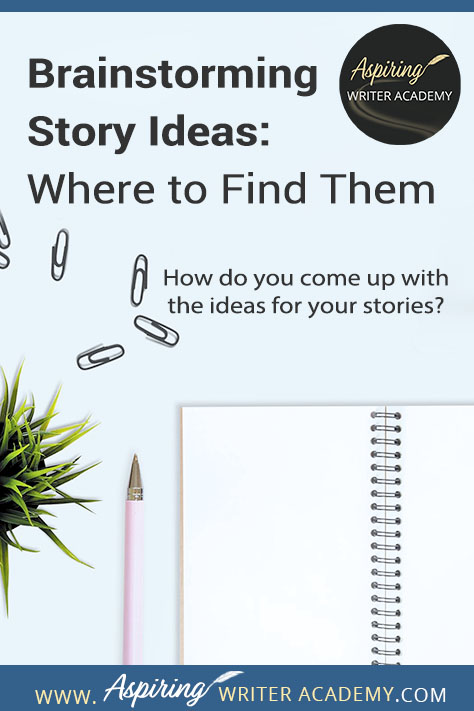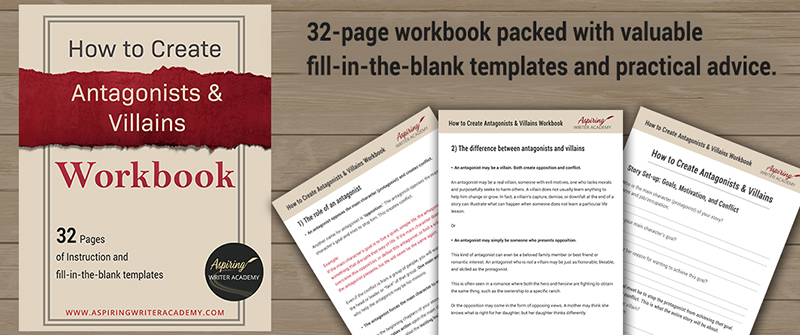Brainstorming Story Ideas: Where to Find Them
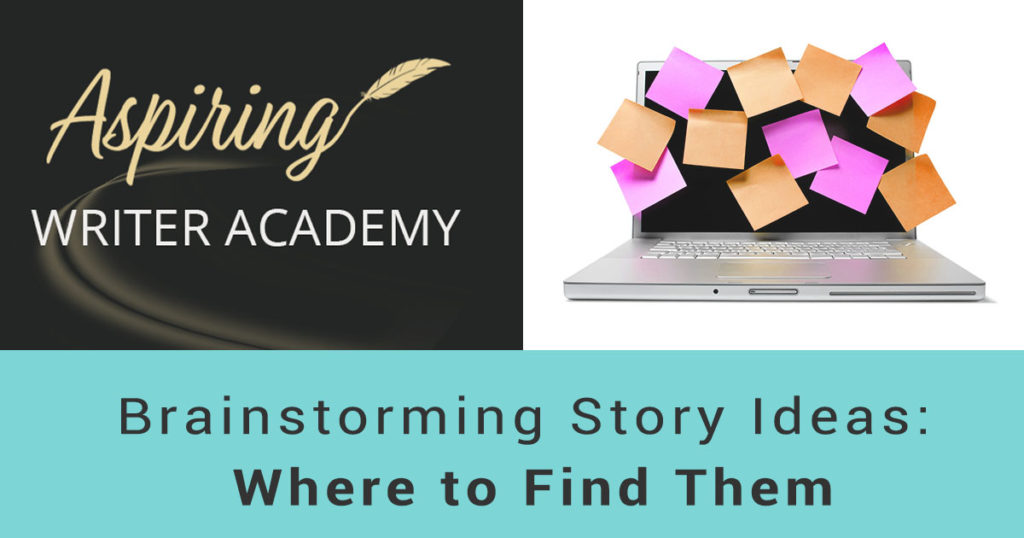
One of the top questions an author gets asked is:
How do you come up with the ideas for your stories?
Below, we give you 3 useful resources and 3 Smart Writer Tips to help you find the inspiration you need to start writing fabulous fiction.

1. Story Ideas are all around you.
- Fictional story ideas might come from something that you learned while on vacation, or while visiting a museum, or the zoo.
- Perhaps you were a witness to an incident that happened at the mall or the grocery store.
- Ideas might come from listening to your neighbor’s kid or from tidbits of conversation overheard at a coffee shop.
- Maybe you can use insight gained from an argument that you had with a friend, or from a phone call, or some of your other life experiences. What are you passionate about?
Stay Alert: Watch and listen.
- Do you know an elderly veteran who has interesting war stories or anyone who has had a fascinating life? Do you know someone with a unique skill? Ask friends and family if they know of anyone who might be a resource to provide useful information.
- Many ‘experts’ in various occupations are thrilled to share their knowledge with aspiring writers. If you do not know of any personally, you can always reach out through email, social media, or community organizations.
- You can also get ideas from TV shows, movies, songs on the radio, Google, Pinterest, Youtube, DVD documentaries, your local library, books, autobiographies, old letters, journals, research, newspapers, magazines. Take a newspaper event and use it to launch a fictional story. Some writing magazines have ‘story prompts.’
Smart Writer Tip: Carry around a small note pad and pen or use a ‘notes’ app on your phone to record ideas as they come to you while you are going about your day. Pay special attention to everything you see and hear.

2. The key is to keeping asking: What if?
What if the main character in your favorite tale had been a different age or gender? Or a talking rabbit instead of a human? Would it be different? How would it be different?
What if you discovered a time machine? Which date in history or in the future would you visit? Why? What would it be like?
Every day we each have a unique set of experiences. Think of something that recently happened to you. What if you could change the outcome? What would you change?
Be Curious: Question Everything
Tap into your inner child and look at the world around you with fresh eyes. Just as small children often repetitively ask why? why? why? Learn to look at people, situations, and events and ask what if? what if? what if?
What if you created a character who shares some of your neighbor’s odd traits and dropped them into a situation like what happened to you while on your way to the airport? Would it make a great scene? What if that character were trapped in an elevator? Or what if…
Mix and match personalities, situations, and settings until you find something that sparks your interest. What if you threw in some opposition? How would that ramp up the excitement?
Smart Writer Tip: For every idea in your little notebook or the notes app on your phone, ask 3-5 ‘what if’ questions to see how you can turn things around. What if you changed the character or the situation or the setting or the opposition? How would that make things more exciting?
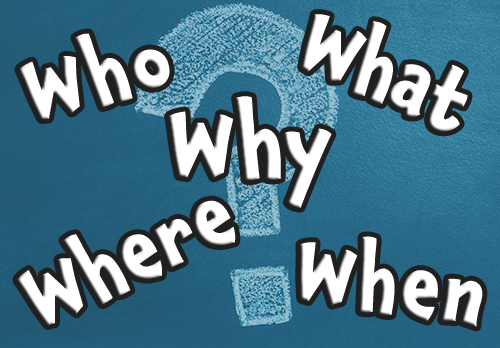
3. Consider the 5 W’s of Story Composition
1. Who is the story about? Who will be your main character?
2. What does your character want? What is he/she trying to do? What is their goal or what is this character trying to overcome?
3. Why must this character do this? What will happen if they don’t?
4. When does this story take place? What day, month, season, year?
5. Where does this story take place? What is the setting or location?
Get Creative: Consider All Angles
Another question you may ponder is: How must this character accomplish this goal, defeat the villain, overcome his problem, or get what they want?
External Conflict: Who opposes this goal? What is the main problem your main character must face? How will they do it? Will anyone help them?
Internal Conflict: What makes achieving this goal or solving this problem difficult for the main character emotionally? Is there something from their past that haunts them or causes them to doubt their ability or self-worth? What do they most fear? Why do they have this fear?
Now take a look at your idea and consider: what kind of story is this? A mystery? Suspense? Romance? Historical? Fantasy? Science Fiction? Paranormal?
Smart Writer Tip: As you develop your story idea, you may want to create a visual story board using Pinterest or cut out pictures from magazines that represent your ideas and create a collage on a poster board. Sticky notes or index cards also work, and you can move them around.
If you have any questions or would like to leave a comment below, we would love to hear from you!
Our Goal for Aspiring Writer Academy is to help people learn how to write quality fiction, teach them to publish and promote their work, and to give them the necessary tools to pursue a writing career.
Ready to take action? If the answer is "yes!" click on the link to Follow Us On Facebook and download your free guide below!
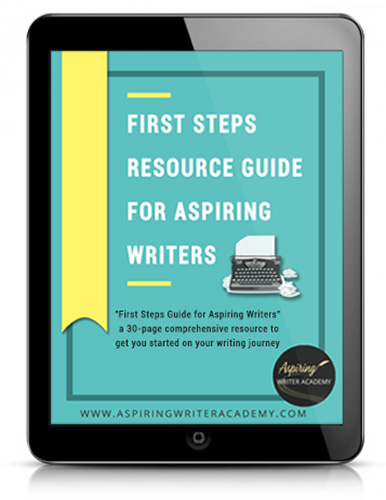
ENTER YOUR EMAIL BELOW
TO GET YOUR FREE
"First Steps Guide for Aspiring Writers" a 30-page comprehensive resource to get you started on your writing journey.
We look forward to hearing from you!
Darlene and Samantha Panzera
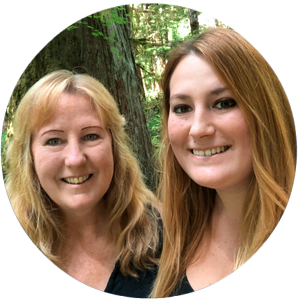
Other Blog Posts You May Like
Scene & Sequel: The Secret to Plotting an Epic Novel
Scene & Sequel: The Secret to Plotting an Epic Novel (Part 2)
Writing Fiction: How to Develop Your Story Premise
12 Quick Tips to Write Dazzling Dialogue
10 Questions to Ask When Creating Characters for Your Story
Macro Edits: Looking at Your Story as a Whole
Basic Story Structure: How to Plot in 6 Steps
Writing Fiction: How To Keep Track of Time in Your Story
Behind the Scenes: Interview with the Authors of the “Sew in Love” Collection
Brainstorming Story Ideas: Where to Find Them
Our Inspiration For Writing A Historical Novella Collection
Do you find it difficult to create compelling antagonists and villains for your stories? Do your villains feel cartoonish and unbelievable? Do they lack motivation or a specific game plan? Discover the secrets to crafting villains that will stick with your readers long after they finish your story, with our How to Create Antagonists & Villains Workbook.
This 32-page instructional workbook is packed with valuable fill-in-the-blank templates and practical advice to help you create memorable and effective antagonists and villains. Whether you're a seasoned writer or just starting out, this workbook will take your writing to the next level.
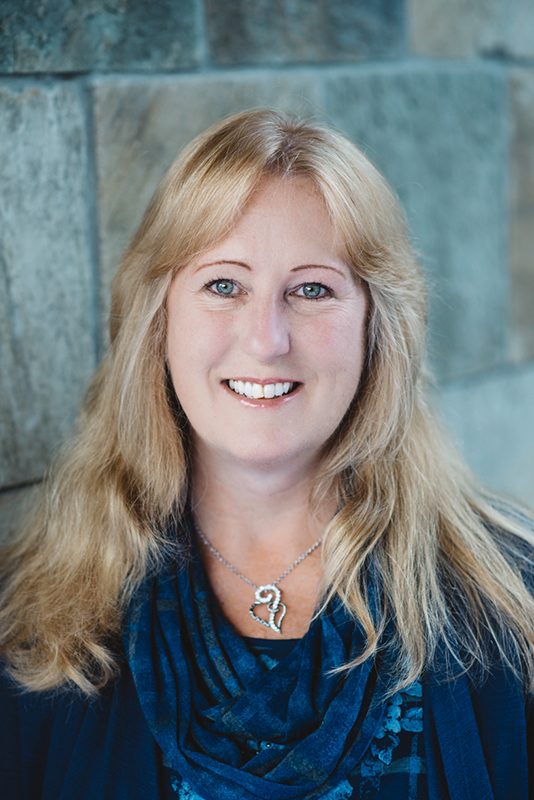
is a multi-published author, speaker, and writing coach. She writes sweet contemporary, inspirational, and historical romance and loves teaching aspiring writers how to write quality fiction. Read her inspiring story of how she published her first book and launched a successful writing career.

